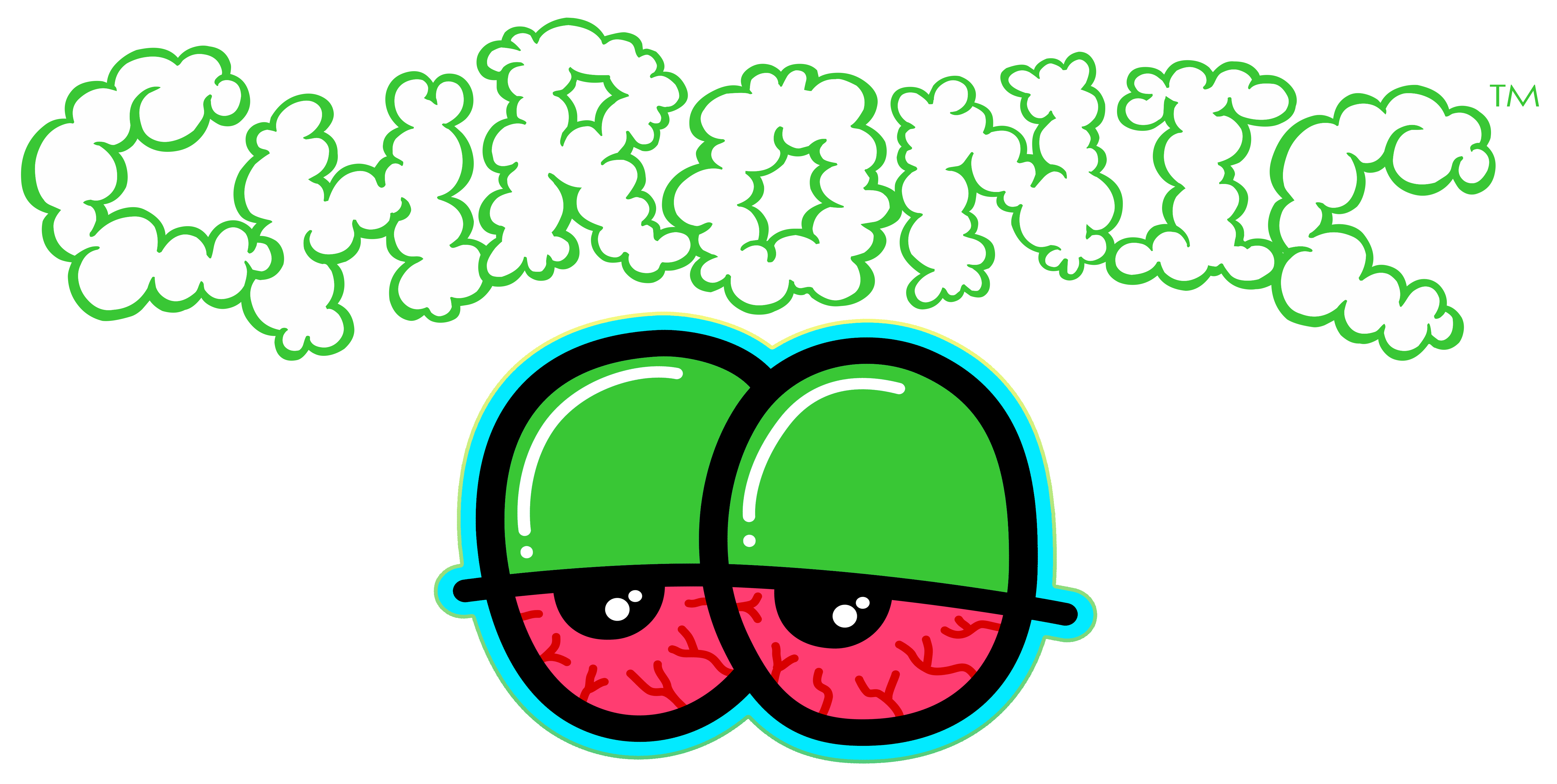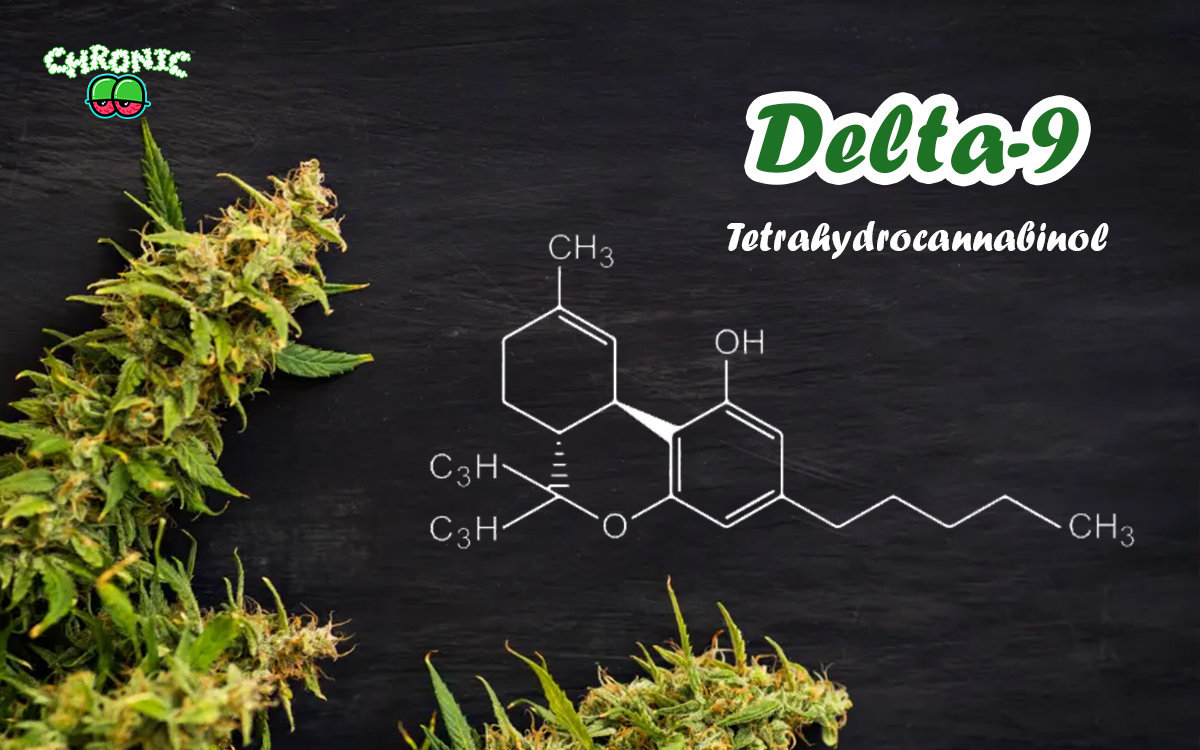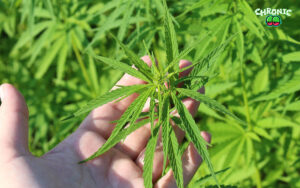Delta-9 Tetrahydrocannabinol (often abbreviated as Delta-9 or Δ9-THC), a chemical component found in hemp and marijuana, is primarily known for producing the psychoactive “high” sensation associated with cannabis use.
The compound interacts with the endocannabinoid system of the body. More precisely, it binds to specific CB1 receptors situated in the brain, which are the centers of emotional states, perception, appetite, and even memory. Tetrahydrocannabinol (THC) is an ingredient present in both marijuana and hemp plants.
In the United States, Marijuana-based delta-9 Tetrahydrocannabinol is still illegal in all states. At the same time, it’s hemp derivates cannot exceed the dry weight of 0.3 percent as per the provisions of the Farm Bill enacted in 2018. You can find THC in different forms: flowers, edibles, tinctures, and vapes.
Delta-9 THC has diverse effects, ranging from relaxation and euphoria to anxiety and paranoia, depending on the dosage and the user’s tolerance. While it can be used recreationally, it is also prescribed for medical purposes, such as pain relief or alleviating nausea. However, like any health-related substance, THC should be used under the guidance of a qualified healthcare professional.
Is Delta-9 safe?
The psychoactive component of cannabis, delta-9-tetrahydrocannabinol (THC), can have adverse effects on certain individuals however when used properly and moderately it can be suitable for healthy adults.

However, there are other factors that may also enhance it’s safety such as; dosage, tolerance, and the environment in which it is used. The effects felt at lower to moderate doses of delta-9, such as calmness, happiness and relief of pain are beneficial. Higher dosage complaints of adverse effects such as anxiety, paranoia, loss, or impediment of body coordination and functioning of the brain.
Is Delta-9 Legal?
U.S. laws under the Farm Bill signed in 2018 state that industrial hemp is legal at the national level as long as THC levels remain below 0.3% on a dry weight basis. However, there has been some legislative mess as several such states have made the use of medical marijuana even the use of recreational marijuana fully legal.
However, despite this guideline permitting the marketing of ‘hemp’ and ‘hemp-derived Delta-9’ products, some states impose stricter regulations.
Also Read: Exploring THCA Benefits for Sleep
The legal systems of countries have changed significantly regarding the Delta-9-THC. In some instances, it has been completely decriminalized whereas in others it has been outlawed.
Delta-8 vs Delta-9 legality
The comparison of Delta-8 and Delta-9 is given below with their respective aspects in the table:
| Aspect | Delta-8 THC | Delta-9 THC |
|---|---|---|
| Federal Legality | Generally legal under the 2018 Farm Bill, provided it is derived from hemp (<0.3% Delta-9 THC). | Federally illegal under the Controlled Substances Act unless derived from hemp and under 0.3%. |
| State Legality | Varies by state; some states explicitly ban Delta-8 regardless of federal law. | Varies by state; legal in some states for recreational or medical use, illegal in others. |
| Source | Derived from hemp or cannabis; often synthesized from CBD. | Derived directly from cannabis (hemp or marijuana). |
| Intoxicating Effects | Mildly psychoactive; less potent than Delta-9 THC. | Psychoactive; stronger effects compared to Delta-8. |
| Regulation | Largely unregulated; may lack testing and quality controls in many areas. | Regulated in states where recreational or medical cannabis is legal; subject to stricter controls. |
| Market Availability | Widely available in states where permitted; sold in vape shops, CBD stores, and online. | Available in licensed dispensaries in states where cannabis is legal. |
| Controversy | Criticized for unclear legal status and potential for synthetic processing issues. | Debated primarily over legalization and federal prohibition. |
| Testing Requirements | Minimal in most areas; lack of standardized safety testing. | Strict testing for potency and contaminants in regulated markets. |
Δ9-THC effects the next day
Delta-9-tetrahydrocannabinol the primary psychoactive ingredient in Cannabis sativa, can remain active in the user’s system the following day. The duration and intensity of these effects depend on factors such as the amount consumed, the user’s tolerance level, and their metabolic rate.
When doses are particularly high or the user has low tolerance, THC’s effects may extend into the next day, potentially interfering with sleep and causing symptoms like dizziness, brain fog, or a “hangover”-like sensation. This can manifest as reduced focus, low energy, or a heavy, lethargic feeling throughout the body.
More Information: Can THCA Pre Rolls get you high?
In some cases, residual Delta-9 THC in the system may contribute to mild cognitive or motor impairments, especially in users who consume high-potency products or engage in heavy use. Another factor is sleep quality—while THC may induce drowsiness, it can disrupt REM sleep cycles, leading to unrefreshing rest and grogginess upon waking.
Other individual factors, such as hydration levels, overall health, and the presence of other cannabinoids, can influence how THC affects the user the next day. However, for most people, its effects significantly diminish within 24 hours.
To mitigate these residual effects, staying hydrated, eating balanced meals, and consuming THC in moderation are recommended.





Pingback: Delta 9 vs Delta 8: What's the Difference? Uses, Legality, Effects, and More - Chronic THCA
Pingback: What is HHC? Everything you need to know - Chronic THCA